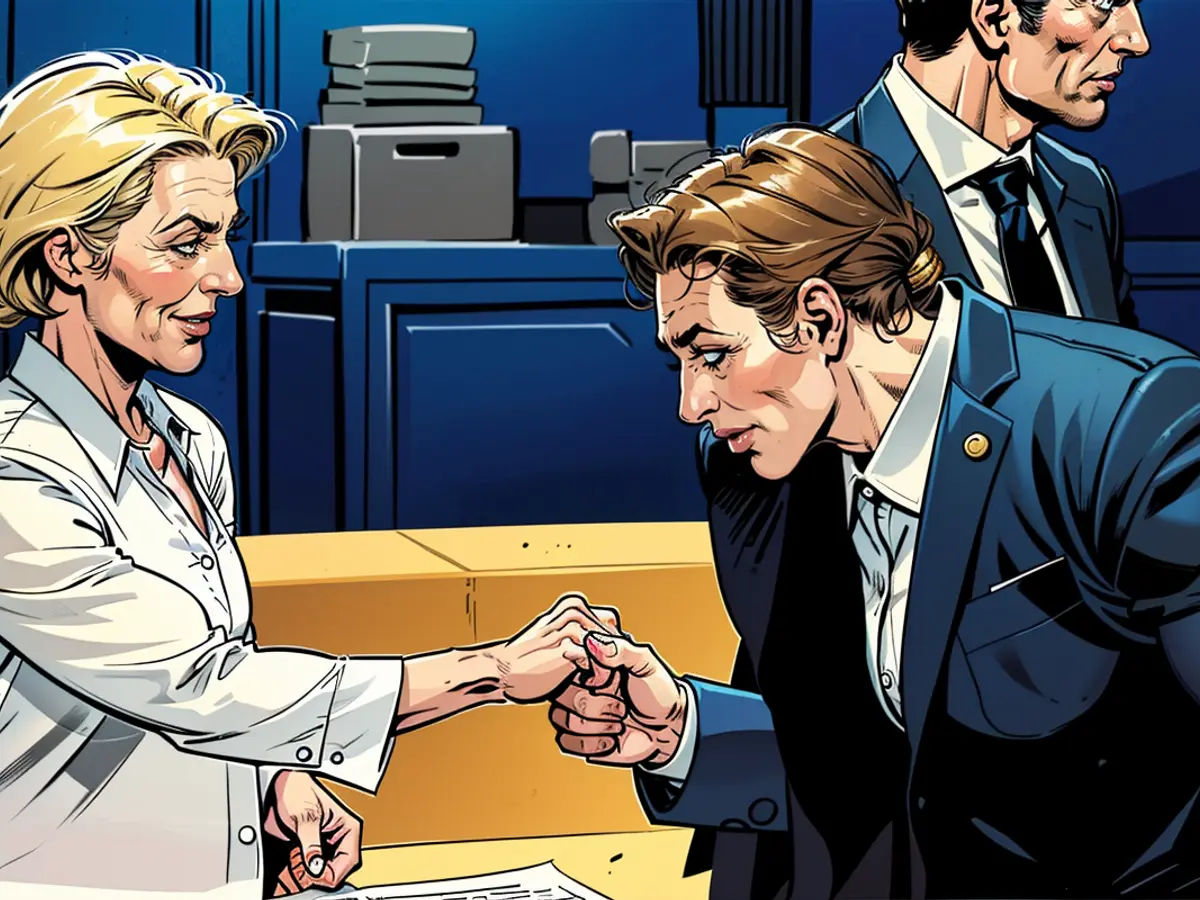Concerns for von der Leyen persist.
In Brussels, the Conservative party, fresh off their election victory, are pushing for extra positions in the EU's leadership, causing a stalemate in the appointment of top EU personnel. This includes a potential second term for Ursula von der Leyen as EU Commission President, which is still uncertain due to a lack of consensus among the heads of state and government. The European leaders will reconvene towards the end of next week to revisit the issue.
At a recent summit, EU leaders could not arrive at a definitive decision on the new appointments for the top EU positions. According to President Charles Michel, there's still no guarantee for von der Leyen's continued role as EU Commission President. The main point of contention, as reported by diplomats, was the Christian Democratic Union (CDU) and Christian Social Union (CSU) parties trying to extend their hold on the EU Council Presidency for five years. However, this proposal was reportedly rejected by the Social Democrats.
The Conservative European People's Party (EVP), who won the most seats in the European election at the start of June, were expected to keep von der Leyen as EU Commission President for another five years. The EU Commission Presidency is considered a prominent position following the European election, managing approximately 32,000 staff members who propose new EU laws and oversee the implementation of European treaties. They also represent the EU at most major international summit tables.
Council Presidency Controversy
As part of the personnel package, beyond the Commission President and the Council President, there's also the selection of the EU's Foreign Representative. Estonian Prime Minister Kaja Kallas is considered a favorite for the foreign role, while António Costa, the former Portuguese Prime Minister, is being considered for the Council Presidency. Costa is aligned with the Social Democrats, like German Chancellor Olaf Scholz, while Kallas is a liberal, similar to French President Emmanuel Macron.
Unlike the Commission President and the Foreign Representative, the Council Presidency is traditionally only a 2.5-year term. However, in past negotiations, this position was often promised for five years.
A decision in the EU Council of Ministers requires a "constructive qualified majority," which means at least 20 of the 27 EU countries must agree, representing at least 65% of the EU population. Currently, a dozen heads of state and government belong to the European People's Party (EVP) in the European Council. Following them are the Liberals, led by prominent member French President Macron, and the social democratic heads of state and government with politicians like German Chancellor Scholz.
Read also:
The Conservative party, who gained power through recent European elections, are advocating for additional positions within the EU Commission, which is causing a standstill in the process of appointing senior EU personnel, such as the EU Commission President, currently held by Ursula von der Leyen. Despite the win of the European People's Party (EVP) in the European elections, which was expected to secure her another five-year term as EU Commission President, the lack of consensus among the EU Council of Ministers makes her continued role uncertain.
At the EU Council of Ministers, a collective decision requires a "constructive qualified majority," which translates to approval from at least 20 of the 27 EU countries, representing at least 65% of the EU population. As part of this council, the liberal-aligned French President Emmanuel Macron leads the Liberals, while the German Chancellor Olaf Scholz represents the Social Democrats. These two groups, along with the Conservative European People's Party (EVP), who hold the majority of EU Council seats, will play pivotal roles in shaping the decisions regarding the potential second term for Ursula von der Leyen as EU Commission President.
EU Commission President Ursula von der Leyen oversees the operations of approximately 32,000 employees within the EU Commission, a prominent position following the European elections that entails proposing new EU laws, overseeing the implementation of European treaties, and representing the EU at major international summit tables. The reappointment of von der Leyen as Commission President and the selection of the EU's Foreign Representative, as part of the personnel package, are currently being deliberated by the EU Council of Ministers, with key figures such as Kaja Kallas of Estonia and António Costa of Portugal being considered for these roles.








